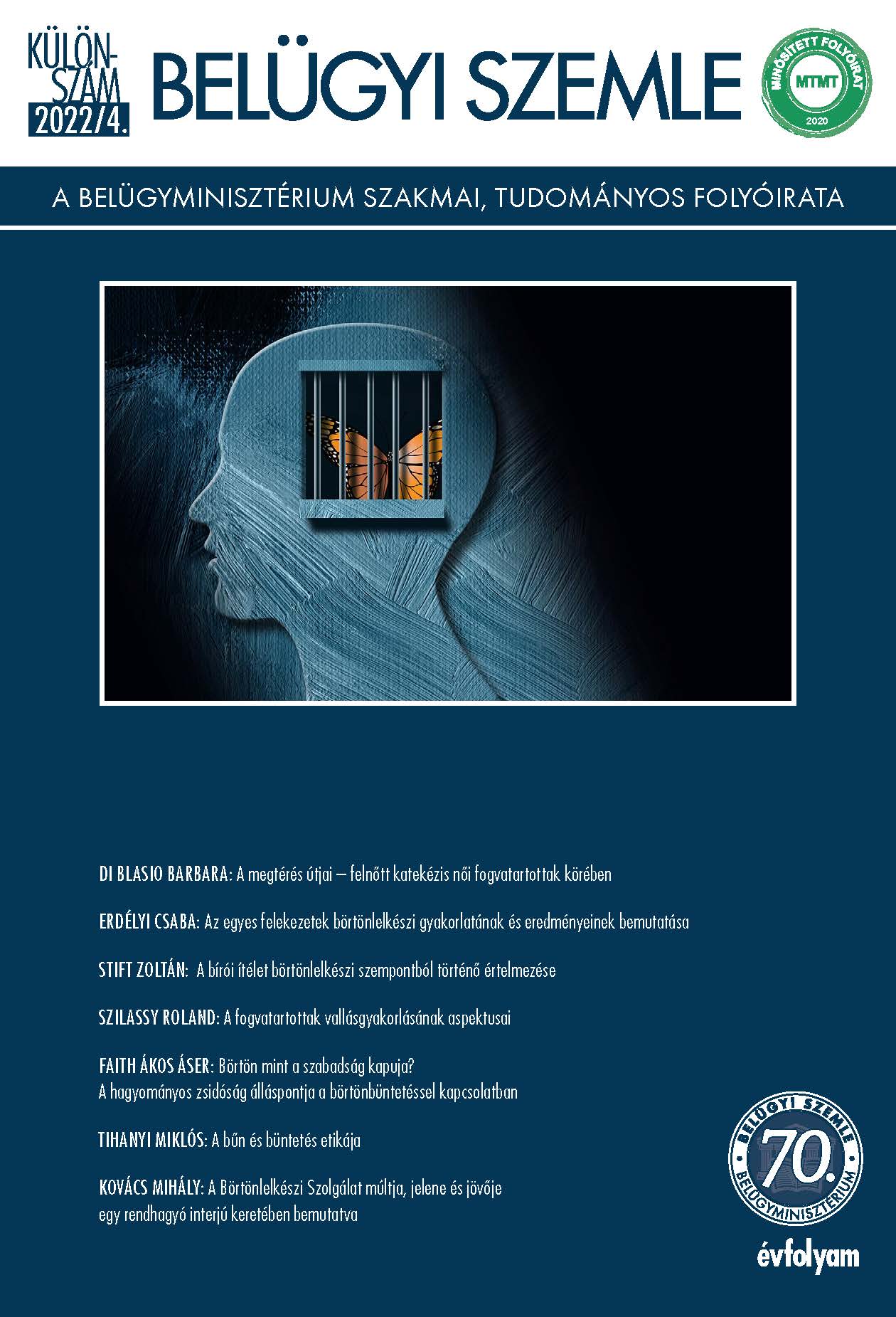Abstract
Aim: According to Jewish religious philosophy, the purpose of life is to transform the world into a deeply spiritual place pleasing to God. To put someone behind bars is to prevent him from fulfilling this duty. Yet, there is good reason to believe that prison, with proper spiritual guidance, is also an opportunity for prisoners to evaluate themselves realistically and objectively and to plan steps for improvement and spiritual growth. It is the truth of this view that I wish to explore in this paper.
Methodology: To prove this hypothesis, I drew on relevant passages from the Jewish religious tradition, as well as the well-known theory of Sir Isaiah Berlin, one of the most prominent twentieth-century exponents of contemporary social philosophy, who described two possible approaches to the concept of freedom, and my own experience as a prison chaplain in Hungarian penitentiaries.
Findings: The prisoners were all men of Jewish origin between the ages of 20 and 60. Although the Jewish religion has also built up a system of institutions for the administration of justice, the practice of imprisonment is absent from Jewish religious law. Yet, in the light of my experience, it can be said that for the perplexed, the state of deprivation of freedom creates a valuable opportunity for repentance, for choosing a moral life. The task of the prison chaplain is to catalyse the process of spiritual growth.
Value: In the course of my pastoral ministry, it became clear to me that in the prison environment – away from social pressures and in forced solitude – inmates have the opportunity to evaluate themselves realistically and objectively, and to plan steps for improvement and spiritual growth.
